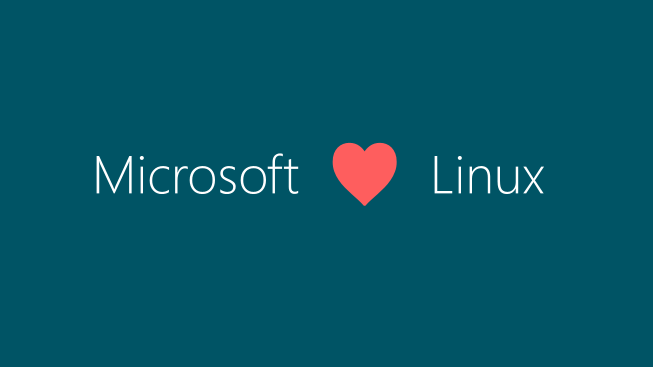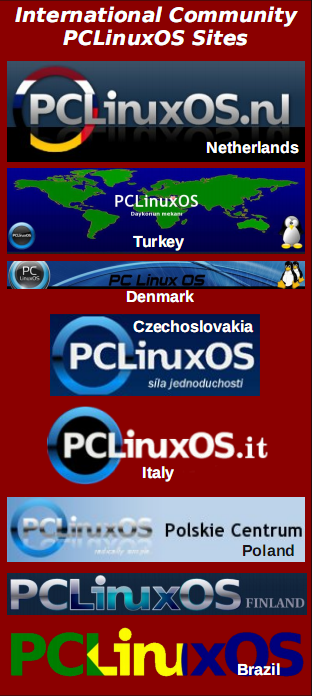| Previous
Page |
PCLinuxOS
Magazine |
PCLinuxOS |
Article List |
Disclaimer |
Next Page |
Microsoft Open Sources Over 60,000 Patents To Help Linux |
|
by Paul Arnote (parnote) In quite a surprise move, Microsoft open sourced over 60,000 patents as part of its commitment to the open source landscape, and to help protect Linux. It has also joined the Open Invention Network (OIN), which aims to protect Linux from spurious patent claims by administering a pool of patents in a defensive nature. This paragraph from their "About OIN" page states it best: The Open Invention Network is a shared defensive patent pool with the mission to protect Linux. Launched in 2005, OIN has strong industry support with backing from Google, IBM, NEC, Philips, Red Hat, Sony, SUSE, and Toyota. Any company, project or developer that is working on Linux, GNU, Android or any other Linux-related software is welcome to join OIN, free of charge or royalties. Add Microsoft, with its massive pool of patents, to the group of 2,650 members of OIN. All told, Microsoft open sourced about two-thirds of its patent portfolio, exempting patents that are specific to the Windows desktop and desktop application code.  This is quite the turnabout in less than two decades. In the early 2000s, Microsoft CEO Steve Ballmer decried FOSS (and Linux) as a "cancer" and as an "intellectual property destroyer." Then, in 2007, Microsoft declared war on FOSS by claiming that Linux, OpenOffice and Android infringed hundreds of its patents. Like the neighborhood bully guarding his street corner, Microsoft demanded royalty payments from the makers of Android phones, or be slapped with a legal battle that a) most manufacturers couldn't afford, and b) that would drag out for years and years in various courts across many jurisdictions. And, Microsoft received those "royalty payments," with many Android phone manufacturers capitulating to the dubious claims of patent infringement, rather than subjecting themselves to a long, drawn out and expensive court battle. But those "royalty payments" may be coming to an end. By becoming a member of OIN, and by signing its agreement, Microsoft may no longer use its massive patent portfolio to seek royalties from OIN community members on Android software. HTC and LG are already members. Meanwhile, Samsung, who in 2013 "owed" more than $1 billion in "royalties" to Microsoft, may want to think about joining OIN. This article from Yahoo Finance explores the ramifications and history of the issue admirably. Meanwhile, here is the blog post on Microsoft's Azure cloud, by Erich Andersen, Microsoft Corporate Vice President, Deputy General Counsel, making the announcement: I'm pleased to announce that Microsoft is joining the Open Invention Network ("OIN"), a community dedicated to protecting Linux and other open source software programs from patent risk. We know Microsoft's decision to join OIN may be viewed as surprising to some; it is no secret that there has been friction in the past between Microsoft and the open source community over the issue of patents. For others who have followed our evolution, we hope this announcement will be viewed as the next logical step for a company that is listening to customers and developers and is firmly committed to Linux and other open source programs. Since its founding in 2005, OIN has been at the forefront of helping companies manage patent risks. In the years before the founding of OIN, many open source licenses explicitly covered only copyright interests and were silent about patents. OIN was designed to address this concern by creating a voluntary system of patent cross-licenses between member companies covering Linux System technologies. OIN has also been active in acquiring patents at times to help defend the community and to provide education and advice about the intersection of open source and intellectual property. Today, through the stewardship of its CEO Keith Bergelt and its Board of Directors, the organization provides a license platform for roughly 2,650 companies globally. The licensees range from individual developers and startups to some of the biggest technology companies and patent holders on the planet. Joining OIN reflects Microsoft's patent practice evolving in lock-step with the company's views on Linux and open source more generally. We began this journey over two years ago through programs like Azure IP Advantage, which extended Microsoft's indemnification pledge to open source software powering Azure services. We doubled down on this new approach when we stood with Red Hat and others to apply GPL v. 3 "cure" principles to GPL v. 2 code, and when we recently joined the LOT Network, an organization dedicated to addressing patent abuse by companies in the business of assertion. At Microsoft, we take it as a given that developers do not want a binary choice between Windows vs. Linux, or .NET vs Java -- they want cloud platforms to support all technologies. They want to deploy technologies at the edge -- on any device - that meet customer needs. We also learned that collaborative development through the open source process can accelerate innovation. Following over a decade of work to make the company more open (did you know we open sourced parts of ASP.NET back in 2008?), Microsoft has become one of the largest contributors to open source in the world. Our employees contribute to over 2000 projects, we provide first-class support for all major Linux distributions on Azure, and we have open sourced major projects such as .NET Core, TypeScript, VS Code and Powershell. Now, as we join OIN, we believe Microsoft will be able to do more than ever to help protect Linux and other important open source workloads from patent assertions. We bring a valuable and deep portfolio of over 60,000 issued patents to OIN. We also hope that our decision to join will attract many other companies to OIN, making the license network even stronger for the benefit of the open source community. We look forward to making our contributions to OIN and its members, and to working with the community to help open source developers and users protect the Linux ecosystem and encourage innovation with open source software. Even back in 2015, Microsoft CEO Satya Nadella proclaimed that "Microsoft Loves Linux." The Windows Server team responded favorably. But, given the history, and after having been called a "cancer" and "intellectual property destroyer," many Linux users weren't so sure. Most approached the "proclamation" as if it was the wolf dressed in a sheep's clothing. At the minimum, Linux users took a "wait-and-see" approach to see if Microsoft had really changed its mind -- and position -- on Linux and FOSS. Then, Microsoft joined the Linux Foundation, even making code contributions to Linux. Their Azure Cloud welcomed Linux users with open arms from day one, when it started in 2013. Then, most recently, they purchased GitHub. If nothing else, Microsoft's message in the post-Ballmer days has been consistent. It is appearing that Microsoft's "love" for Linux (and FOSS) is real and ongoing. Sure, there are staunch holdouts who still doubt Microsoft's new romantic affair with Linux and FOSS. One is the notable Richard Stallman, who will probably never view anything about Microsoft in a positive light. After all, there is just too much "history" to overcome in that ring. In fact, Richard Stallman claims that Microsoft's "love" for Linux and FOSS will end up hurting free and open source software. Of course, I can remember back to when I was a small child. I was born in 1960, just 15 years after the end of WWII. I can remember my parents and grandparents proclaiming that there was no way that they would buy anything made in Japan, still holding onto the animosity that defined a significant time in their lives. Just as it was with products "Made in Japan," it takes some people a much longer time to get over that animosity, and to give up the fight that has defined them for so long. Some people never fully get over it. That's just the way things are. But given the events of the past decade, it's sure looking as if Microsoft is, indeed, changing. It's embracing Linux and FOSS, rather than attacking it. Perhaps part of the reason for that change is that Linux and FOSS have persisted and even flourished in that atmosphere of strife and hate. But probably, and more importantly, Microsoft has finally figured out that you DO catch more flies with honey, than with vinegar. To this end, both Linux (and FOSS) have as much to gain as does Microsoft from a friendlier, kinder, more collaborative co-existence. At least, I hope this is the case. |


